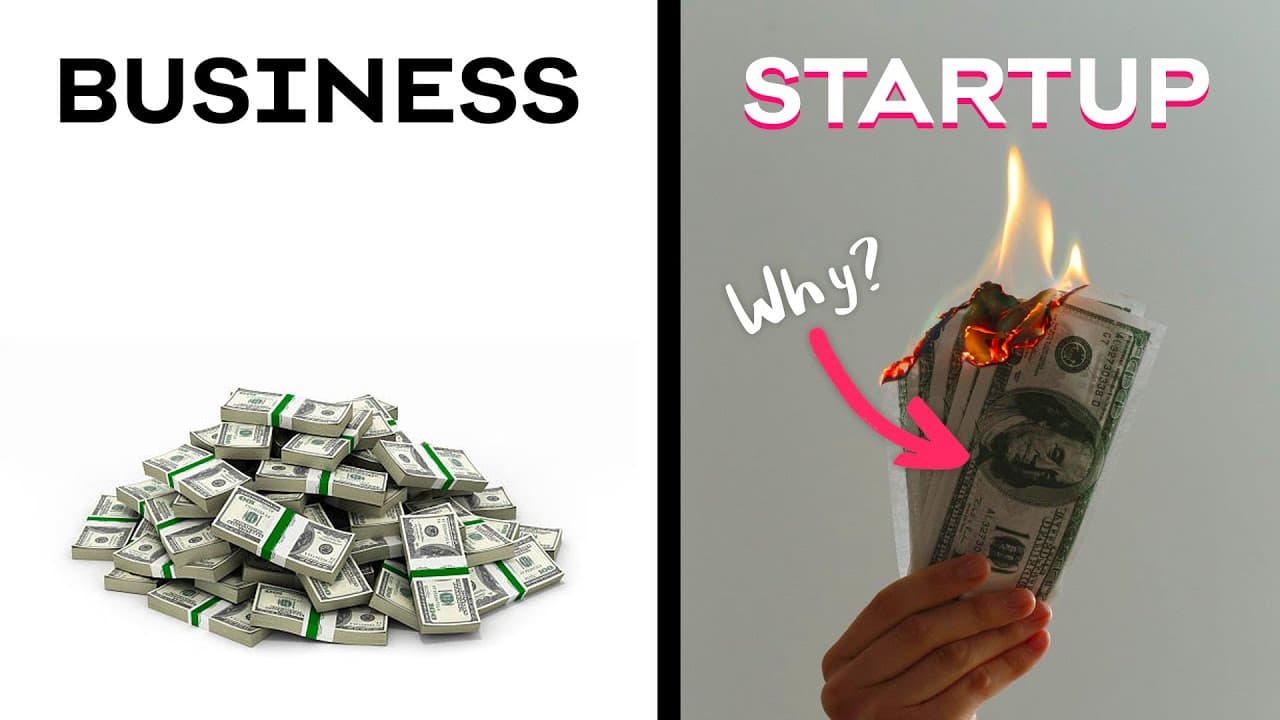Why Investors WANT Startups to Lose Money - Startups 101
15 Nov 2023 (2 years ago)

Equity Distribution (6m1s)
- Investors expect a large return on investment (ROI), which can be slow in traditional businesses.
- Returns from dividends are often insufficient and slow, typically not satisfying venture capital (VC) requirements.
- Venture capitalists are keen on liquidity and may not have significant control with small equity stakes.
- Traditional businesses are usually funded with larger equity stakes for smaller investments.
- Tech startups are attractive to VCs due to the potential for acquisition or IPO, offering quicker and larger returns.
- Founders seeking VC must be open to an exit strategy; those wanting to retain full control are incompatible with VC interests.
Aqua Hires (11m2s)
- Acqui-hires occur when a startup is bought for its team rather than its product or revenue.
- Example of Fly Labs acquired by Google for their team to join Google Photos.
- Acquisition offers mix cash for investors and stock or bonuses for the team to incentivize staying post-acquisition.
- The value of an acqui-hire can be benchmarked at roughly $1M per engineer, considering the costs and risks of hiring.
- Acqui-hires typically provide investors with a modest return, about 1x to 1.5x the original investment.
Customers/Audience
- Strategic acquisitions focus on acquiring an established audience or removing competitors.
- Hubspot's acquisition of The Hustle and Business Insider’s purchase of Morning Brew were driven by the large, engaged audiences.
- Estimates suggest acquisitions may value each active user at tens of dollars.
- These deals often result in both removing competition and adding talented teams to the acquiring businesses.
- Strategic significance, such as Instagram's acquisition by Facebook, goes beyond mere user numbers and includes benefits like fresh ideas and avoiding competitors' acquisitions.